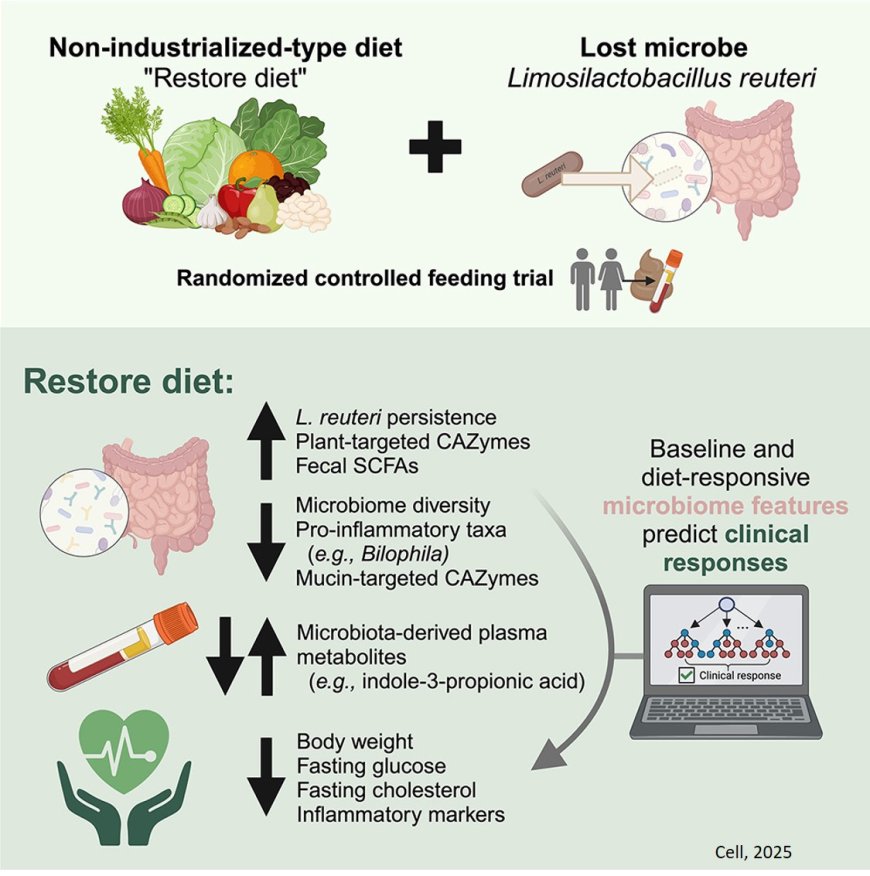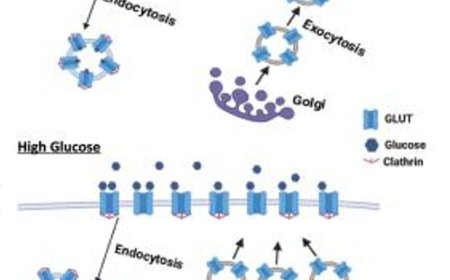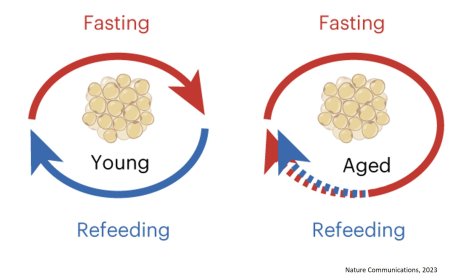A ‘non-industrialized’ style diet can reduce risk of chronic disease

Researchers have found that a newly developed diet inspired by the eating habits of non-industrialised societies can significantly reduce the risk of a number of chronic diseases – and are to share recipes with the public.
Industrialised diets—high in processed foods and low in fiber— have contributed to a substantial rise in chronic diseases like obesity, diabetes, and heart disease, in affluent countries such as Ireland.
A paper published in the prestigious scientific journal Cell shows that a newly developed diet that mimics eating habits in non-industrialissed communities led to significant metabolic and immunological improvements in a human intervention study. In just three weeks the diet:
o Promoted weight loss
o decreased bad cholesterol by 17%
o reduced blood sugar by 6%
o reduced C-reactive Protein (a marker of inflammation and heart disease) by 14%
These improvements were linked to beneficial changes in the participants’ gut microbiome, the home to trillions of bacteria that play a vital role in our health, influencing digestion, immunity, and metabolism.
“Industrialisation has drastically impacted our gut microbiome, likely increasing the risk of chronic diseases.” explained a Principal Investigator.
“To counter this, we developed a diet that mimics traditional, non-industrialised dietary habits and is compatible with our understanding on diet-microbiome interactions. In a strictly controlled human trial, participants followed this diet and consumed L. reuteri, a beneficial bacterium prevalent in the gut of Papua New Guineans but rarely found in the industrialised microbiomes.”
The study demonstrated that the new diet entitled NiMeTM (Non-industrialized Microbiome Restore) diet enhanced short-term persistence of L. reuteri in the gut.
However it also improved microbiome features damaged by industrialization, such as reducing pro-inflammatory bacteria and bacterial genes that degrade the mucus layer in the gut. These changes were linked to improvements in cardiometabolic markers of chronic disease risk.
Although participants did not consume fewer calories on the NiMe diet, they lost weight, and the diet alone led to considerable cardiometabolic benefits.
In previous research, the team, studying the gut microbiome in rural Papua New Guinea, found that individuals there have a much more diverse microbiome, enriched in bacteria that thrive from dietary fibre, and with lower levels of pro-inflammatory bacteria linked to western diet. This information was used to design the NiMeTM diet.
The NiMeTM diet shares key characteristics of non-industrialized diets:
· Plant-based focus, but not vegetarian: Primarily made up of vegetables, legumes, and other whole-plant foods. One small serving of animal protein per day (salmon, chicken, or pork).
· No dairy, beef, or wheat: Excluded simply because they are not part of the traditional foods consumed by rural Papua New Guineans.
· Very low in processed foods that are high in sugar and saturated fat.
· Fibre-rich: Fiber content was 22 grams per 1,000 calories—exceeding current dietary recommendations.
“Everybody knows that diet influences health, but many underestimate the magnitude”, said the author.
https://www.cell.com/cell/fulltext/S0092-8674(24)01477-6
https://sciencemission.com/Cardiometabolic-benefits-of-a-non-industrialized--type-diet












